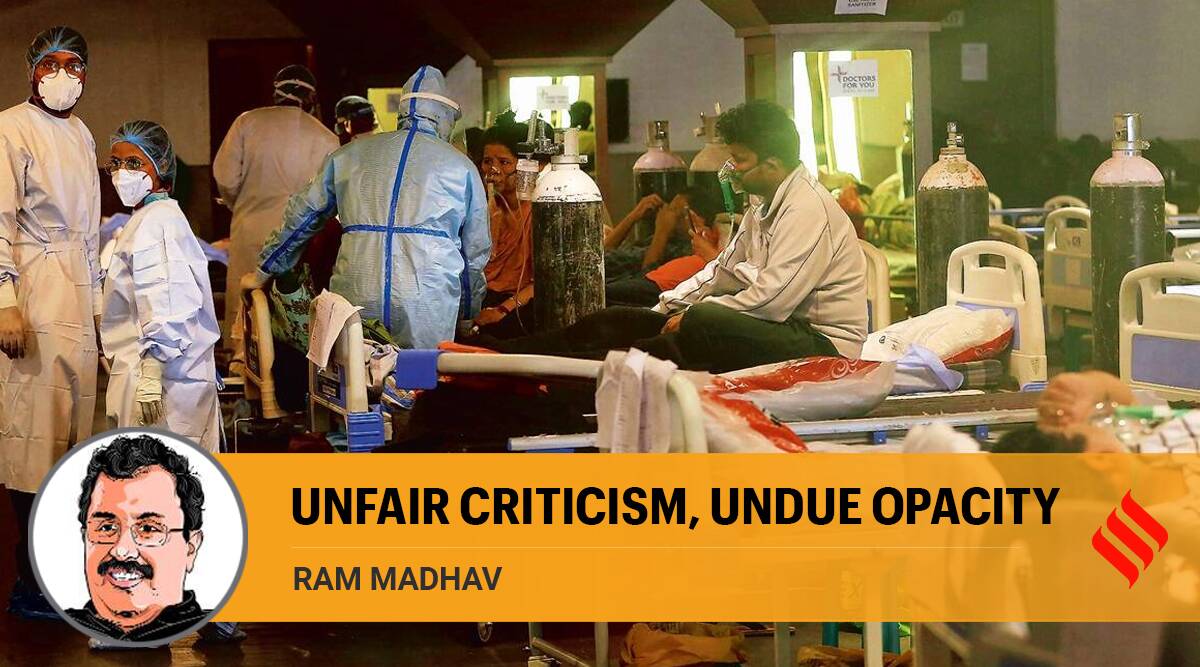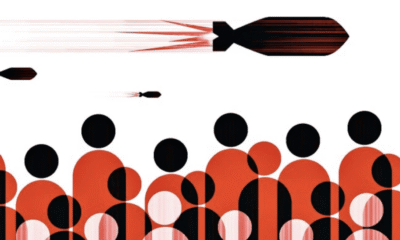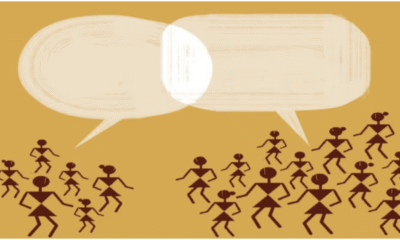
|
Getting your Trinity Audio player ready...
|
In the negative narrative over the Indian government’s handling during the second Covid wave, we are forgetting its sincere endeavours and the real challenges. A greater part of the narrative is focussed on deriding and demeaning the prime minister with the singular objective of projecting him as insensitive and incompetent. Those indulging in this kind of propaganda may have their political agendas but in the process, they are ending up demeaning India in the eyes of the world. It is not my intention to indulge in whataboutery. But the fact remains that compared to many countries in the developed world, India has been able to secure its populations from the Covid catastrophe better.
No doubt our systems were overwhelmed by the virulence of the second wave that has rapidly spread like a wildfire across the country. This kind of virulence was not seen anywhere during the first wave. We could tackle the first wave more efficiently than many other countries with much better facilities and infrastructure. There was a time last year when some European countries were in such a helpless condition that they left their elderly — people above 60 years of age — to die in their homes, refusing hospital facilities to them. In the US, the first wave of the pandemic had caused so much panic and destruction that the Trump administration was forced to bring in the National Guard.
India was able to contain the pandemic more efficiently until March this year. With a 1.43 per cent mortality rate, India registered the world’s lowest mortality from Covid until the second wave broke out. The worst hit in the first wave were Europe and America. When we had just 1.3 lakh cases, the US had 1.6 million cases. New York became a ghost city with high mortality and widespread panic among its residents. From Italy to the UK, many European countries had seriously floundered despite the best healthcare infrastructure. India not only brought the first wave under control with a smaller mortality rate but also became the vaccine hub for the world. The World Health Organisation has praised India for its “timely, comprehensive and robust” response. PM Modi spoke about it in his January address to the World Economic Forum. Those criticising his speech as a premature celebration of victory must read it fully. Modi only said that despite relatively inferior health infrastructure, India did not get demoralised and went ahead with “a proactive approach with public participation”.
Experts in the government were probably hoping that the second wave would also be like the first one. But it turned out to be a tsunami. The sudden spike has caused a serious shortage of beds, ventilation equipment and testing facilities. It brought to light the poor state of affairs in India’s public health infrastructure. Health is a state subject under the Constitution. Over the years, the sector faced major neglect in the states leading to a disheartening scenario. While the UK has one bed for every 385 people and the US has one for every 416 people, we have just one bed for every 1,818 people. The US has one doctor for every 345 people and the UK has a doctor for 357 people, we have one doctor for 746 people. Nursing staff is the most important segment of the Covid relief infrastructure. In the UK, there is one nurse for every 113 people, and in the US the number is one nurse for every 85 people. But in India, we have just one nurse for every 588 people.
If we are overwhelmed by the Covid tsunami today, one reason is this continuous neglect of the public health infrastructure. For the first time in seven decades, the Modi government has, in its new National Health Policy, announced spending 2.5 per cent of the GDP on healthcare infrastructure. States too have to ramp up efforts to strengthen it. The second wave came too soon for the government to cope with its virulence. While some of the criticism, like holding public rallies or organising religious festivals, can be described as legitimate, most others are hyperbolic ravings of politically-motivated commentators. These criticisms ranged from insensitivity to deliberate inflicting of suffering on the masses. Modi did not act like Bolsonaro of Brazil or Trump of America. He did not demonstrate unscientific grandstanding or utter disregard for health protocols like those leaders. Instead, he is busy enhancing India’s capacity to face this new challenge.
There is an effort by the Centre to involve different stakeholders, including state governments and the UT administrators in the fight against this tsunami — a “Whole of Government” approach as described by Modi. The government has also invited NGOs to cooperate with its agencies in Covid relief. Although they came late, these decisions of burden-sharing and stakeholder involvement will help the government in tackling the challenge more efficiently.
Surprisingly, some commentators are ridiculing the government for receiving support from other countries. Covid is not a national issue. It is like a forest fire, as described by the WHO Director-General Tedros Ghebreyesus. If you douse it in one place it can flare up in another. It calls for the combined efforts of all countries. That was why we came forward to supply vaccines to over 70 countries through the “Vaccine Maitri” programme. Just as containing the virus in other countries was seen as our responsibility, containing it in India is in the interest of all other countries. There is no reason to create a controversy over it.
Initially, the government looked like “a deer in the headlights”, as one commentator put it. But it has come out of that and is engaged full throttle in handling the challenge. A little more transparency, a little more engagement with the public by the political leadership and a little more openness to constructive criticism and enlightened expert opinion from outside the government would further help the government’s efforts. After all, the lives of millions of people are at stake.
(The article was originally published in Indian Express on May 15, 2021. Views expressed are personal.)



